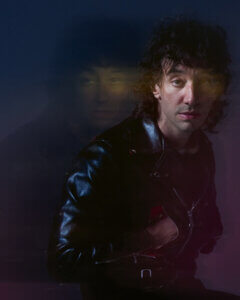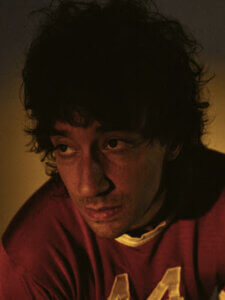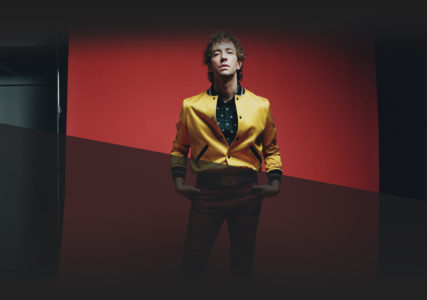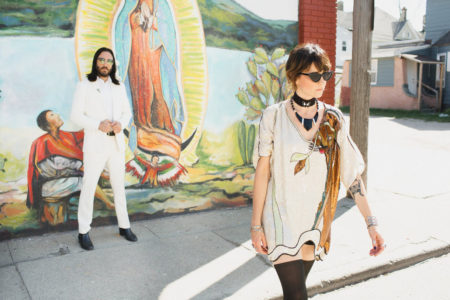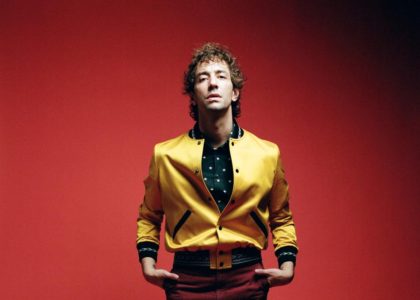DYGL Find Inspiration Abroad
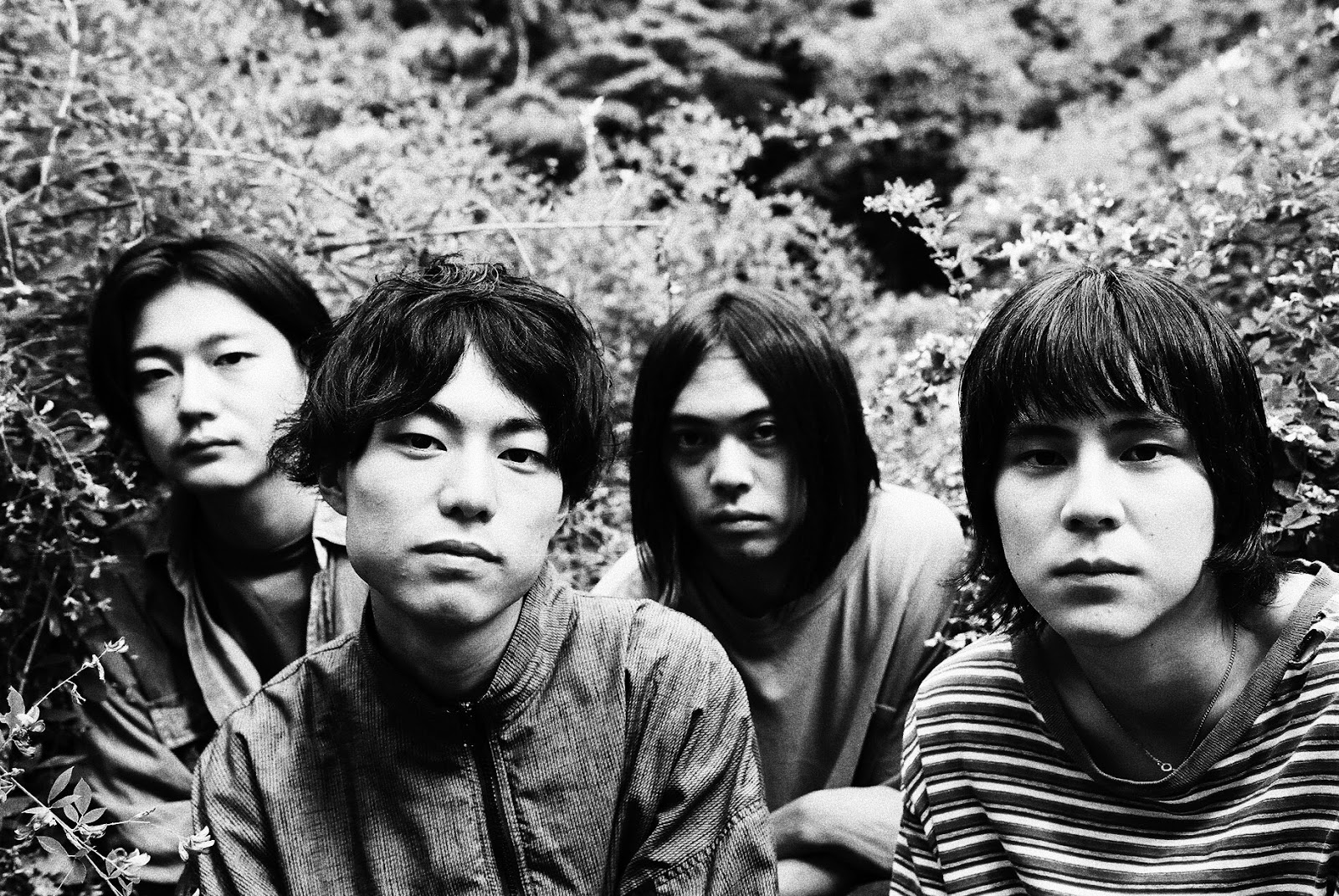
Tokyo indie rockers DYGL (pronounced “dayglow”) made a bold move jet-setting across the Pacific Ocean in late 2015. But the gamble paid off: Over two months in Los Angeles, they recorded their second EP Don’t Know Where It Is. Over another two months in New York, they recorded their debut album Say Goodbye to Memory Den with not only Gus Osberg, one of the top producers they aspired to work with, but also Albert Hammond Jr. of one of their favourite bands The Strokes. The result, released last April on Hard Enough, is tight and relentlessly catchy, like many of DYGL’s other idols including The Beatles, The Kinks, and The Beach Boys.
DYGL singer and guitarist Nobuki Akiyama told Northern Transmissions about the inspiration they found abroad, Japan’s political music culture, having been in America when Donald Trump won the presidency, and more.
Northern Transmissions: Who are some of the best bands you’ve seen in New York? What have you learned by watching them?
Nobuki Akiyama: There were so many good bands out there playing which we could catch while we were there. Slaves from the UK played at Rough Trade NYC. That was so fucking energetic and dynamic. They are just two-piece but powerful enough to get the attention of all the audience there. It was a blast. Stello, who is our friend, did great performance too. He’s from Connecticut and now living in New York, and he’s also in the band called Del Water Gap. Their show was great. I saw Young Fathers and Chairlift at Music Hall of Williamsburg, and both of them were amazing. They all seem to know what they are doing, what they want to create. They are pretty conscious and focusing on their own style, and that is inspiring.
NT: How has your songwriting changed since going to New York?
NA: [M]aybe when I was there my style of songwriting hasn’t changed so much. But I could find a lot of new ideas and phrases from all the bands I saw there. Each one of them tries to do something new and unique…. Tokyo is one of the biggest cities in the world with no doubt, but still, it’s not kind of a global city compared to New York, LA, or London. Maybe more than 90% of the population of Tokyo is still Japanese, not counting the tourists. I don’t say it’s a good or a bad thing, but the city is way more domestic and conservative. In New York, we could experience some kind of hybrid culture, cross-over arts, more global sense.
NT: You also spent some time in Los Angeles in 2015 recording Don’t Know Where It Is at a studio. How much time did you spend in LA? What did you learn there?
NA: At that time, I think we spent two months and a half in LA. Included a few DIY shows like an in-store one at Lolipop Records. We’ve learnt a lot! Everything in LA is so different from things in Tokyo: people, community, music, and spirit. There is independent culture in Japan too but not that kind basically. LA people are really good at making art space, community, music events. It’s kinda rough and quite free. Any types of houses or restaurants can be the place for music. And sometimes, it’s actually free entrance. You can do the show only at the venues in Tokyo, and the average price for the entrance fee at the venue is more than 25 dollars in general. That’s not cheap for the kids who want to start a band. Tokyo’s better organized and conservative. Instead, every gear is in good condition, everything’s always on time, every place is so clean, and people are gentle. Which is nice! But sometimes this social atmosphere of rules and order keeps people from doing extreme things, making something unique, and being excited enough to be creative. Both cities got their own things, but I’ve learnt many DIY ideas from LA.
NT: On title-track “Don’t Know Where It Is”, you get a bit political but not about any specific issue. Is your music becoming more political the longer you live in America, especially during these times?
NA: Yeah, indeed, I felt many political aspects of America when we’ve stayed there. When President Trump was elected as the new leader of America, we stayed in Rockaway, New York. So many people are acting and discussing to express their feelings for or against the new circumstance happening. That is quite different attitudes from the Japanese ones. Actually, seems like less and less political songs are sung in Japan in these few decades compared to 70s Japanese folk era. But very recently, slowly, more young people think they need to change our society and create something more political than before. I’ve grown up with much great rock music which is quite political, so it’s a natural thing to me to make political songs. I don’t think we must, but it’s a great thing that we can show our thoughts by making art.
But I think there are always many options to describe these matters. Especially as Japanese, as the Far East island (in our map, New York is far east though), we might have a different perspective than any other American or European bands. And maybe we’re different from domestic bands too. We wanna do the things that only we can do. But I know sometimes just singing a love song could be political too. Sometimes not. Sometimes you wanna stand against certain circumstances of the politic matters. Sometimes we sing to support someone. Sometimes we just sing with no reason. I’ll keep thinking about what to do as the band, or as artists.
NT: What are the biggest, most surprising differences or similarities you see between New York’s and Tokyo’s music scenes? Has seeing your success and how much you’ve been learning in a new country inspired any of your musician friends back in Tokyo to take a similar chance?
NA: To be honest, New York and Tokyo are kind of similar compared to LA and Tokyo. But New York is more liberal and global in a way, and Tokyo is still more domestic and conservative. More bands are commercial singing the same lyrics on the same kinda songs. I guess it reflects the character of our society somewhat: everything is in order too much. At the same time, it causes some extreme scenes like noise, avant-garde, or hardcore in a unique way by the people who cannot accept the system and the rules of the society. But the Japanese society is still rather closed for creative people. I felt New York is more open-minded for musicians and artists. Some might say it’s actually hard to compete with so many good artists inside New York, but in my opinion, spending time among the people who have the creative idea must make you wanna do your own things. This is good. And yeah, if we have some impacts on the band[s] in Japan, I’m glad for it. We’re not just going to New York but also, we come to some Asian countries as well still being based in Japan. If our music and our way of doing it inspire some of our friends and people in our country, that’d be cool. Maybe we had a certain impact on them to a certain degree. I’m glad if more people in Japan starts doing their own unique art anyway no matter what inspires them.
NT: What’s one thing you want people outside of Japan to know about the country’s independent music culture? Is there one band, label, or style you think everybody should pay attention to?
NA: If you mean Japanese independent music culture, there are not many good things happening right now. Hip hop scenes are a bit more interesting than the rock ones I guess, but still nothing, really. Some media fudge up the music movement called “City Pop” in [the last] few years, but it’s nonsense. There was already the same-named movement back in 70s in Japan, and that one is way better and well-formed, so I wish they found a better new word at least. And this one’s not about musical category. It’s just some fancy slogan. So, I mean, indie scenes in Japan are also too commercial and not so creative. There must be good artists independently but no good movement, scenes, culture, or whatever now…. If they start not to care about market or critics or whatever, there might be hope. Many people in Japan actually loves music a lot, so I hope they’re gonna start making their own ways by themselves.
Anyway, I rather recommend people outside of Japan to check the stuff in the other decades if you wanna know good Japanese music. I don’t even know if I can say it’s INDEPENDENT music, but Salon Music, Cornelius, Plastics, Cibo Matto, Shintaro Sakamoto, Haruomi Hosono, and Ryuichi Sakamoto, they’re all great. Also, Japanese music genre called Kayo Kyoku is interesting as well. Maybe some track-maker might wanna sample for their beats. After all, jazz and souls are used. This is kind of Japanese soul. It sounds more domestic. Not sure how many people outside of Japan could understand how good it is, but it’s worth a shot.
interview by Leslie Chu
Latest Reviews
Tracks
Advertisement
Looking for something new to listen to?
Sign up to our all-new newsletter for top-notch reviews, news, videos and playlists.





